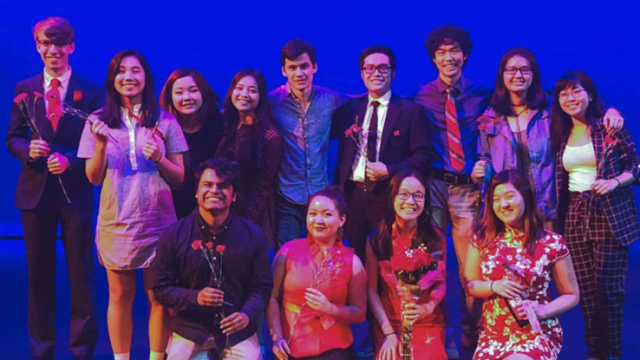
The Multicultural Student Association (MSA) hosted a Chat ‘N Chew for Asian Pacific Islander South Asian American (APISAA) Heritage Month on Thursday, March 27, 2025. Chat ‘N Chew is a monthly MSA event series that discusses different cultural themes and provides a safe space for community discussions and engagement. This month’s Chat ‘N Chew featured a mix of staff and students who participated in an active discussion.
The main discussion topic was the impacts of Western culture on Asian culture. The first question posed during the discussion was “How do you feel about the commercialization of Asian culture?”
This question brought mixed responses; while the commercialization of certain cultural aspects could potentially lead to more appreciation for a culture, there is also a risk of diminishing the significance of cultural objects and styles for the sake of mass production. This question was further explored in a question discussed later about Oli London, a white British influencer popular for identifying as Korean and “transracial”.
Often, the commercializing of other cultures in the U.S. comes with a kind of infantilization of culture or the diminishing of cultural achievements. This doesn’t truly respect Asian culture but instead cherry-picks very specific parts of the culture that are deemed “desirable” or easy to cheaply imitate.
For example, participants shared how they thought Oli London doesn’t truly want to be Asian or care about the culture he was trying to “switch” to; he just cared about the very surface-level “cute” parts of the culture that he saw as desirable or trendy.
This sentiment of only surface-level care for culture was echoed by another attendant, who pointed out things like yoga and certain types of food that have been commercialized and made trendy to the point where they have lost some of the actual cultural roots behind them.
Another question posed to attendees asked about the loss of cultural pride within “fusion foods” — the practice of altering certain foods to sell to an American market. An example brought up is orange chicken, as it is Asian in origin but has found popularity in America and has been partially altered to fit an American audience.
Attendees said that there can still be pride in creating these “fusion” things and pride in knowing people enjoy them even if they may not be the same as when it started. As long as there is a respectful exchange, there is the potential for good to come from it. This is the main idea behind fusion foods, which people have mixed opinions about but has led to innovation in the past. The problem arises when there is a general lack of respect for the culture itself but an appreciation of the specific aspect.
America tends to kind of dip their toe in a culture and say, “Yeah, this is good, but keep everything else away.” You can see this with the TikTok ban attempts and general xenophobia while also loving Asian skin care trends and beauty products. On the one hand, this kind of close but not too close approach allows for a more palatable introduction to a culture. On the other hand, the danger is that the surface level introduction will always sum up the culture to those people.
Another topic of discussion was America’s influences on other cultures. The example was Spam and how it is very popular in Hawaii due to it being eaten by soldiers stationed there. This view provides a different perspective to how we look at America’s relationship with culture.
America is a melting pot and takes from the cultures of all those who make up its population, but in this example, it’s the opposite. This can be a beautiful thing b
ecause it’s an exchange rather than a one-sided transfer, allowing for greater appreciation.
One of the complexities is that sometimes this transfer may not always be a wanted thing. In some cases with the U.S., we impose something on a group of people for the sake of “democracy” or “civility,” even when it is something that they don’t necessarily want. These relationships have the potential to be good or bad, depending on the approach.
Culture is something that definitely should be shared, but it should be received with respect first and foremost. For different cultures to truly be appreciated, they can’t be viewed with a trendy or commercial view, they have to truly be seen for what they are.